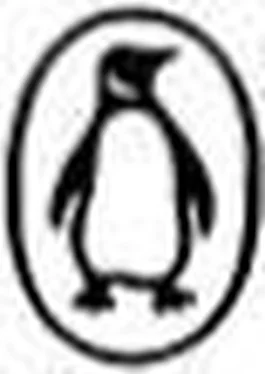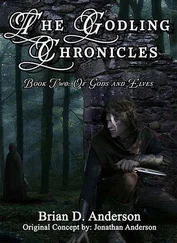Davidson, H. - Gods and Myths of Northern Europe
Здесь есть возможность читать онлайн «Davidson, H. - Gods and Myths of Northern Europe» весь текст электронной книги совершенно бесплатно (целиком полную версию без сокращений). В некоторых случаях можно слушать аудио, скачать через торрент в формате fb2 и присутствует краткое содержание. Жанр: Старинная литература, на английском языке. Описание произведения, (предисловие) а так же отзывы посетителей доступны на портале библиотеки ЛибКат.
- Название:Gods and Myths of Northern Europe
- Автор:
- Жанр:
- Год:неизвестен
- ISBN:нет данных
- Рейтинг книги:5 / 5. Голосов: 1
-
Избранное:Добавить в избранное
- Отзывы:
-
Ваша оценка:
- 100
- 1
- 2
- 3
- 4
- 5
Gods and Myths of Northern Europe: краткое содержание, описание и аннотация
Предлагаем к чтению аннотацию, описание, краткое содержание или предисловие (зависит от того, что написал сам автор книги «Gods and Myths of Northern Europe»). Если вы не нашли необходимую информацию о книге — напишите в комментариях, мы постараемся отыскать её.
Gods and Myths of Northern Europe — читать онлайн бесплатно полную книгу (весь текст) целиком
Ниже представлен текст книги, разбитый по страницам. Система сохранения места последней прочитанной страницы, позволяет с удобством читать онлайн бесплатно книгу «Gods and Myths of Northern Europe», без необходимости каждый раз заново искать на чём Вы остановились. Поставьте закладку, и сможете в любой момент перейти на страницу, на которой закончили чтение.
Интервал:
Закладка:
The upkeep of a temple was in general the business either of the ruler or of a family, and in the latter case the man who built the shrine and his descendants would act as its priests. Something of the nature of communities or colleges of priests must presumably have existed in the early days of heathenism, but we hear little of them in the sources which remain to us. In any case, the power of priesthood in the last resort depended largely on the approval of the king. Once he was converted to Christianity, the main prop of the old faith disappeared, and in the Anglo-Saxon kingdoms, according to Bede’s detailed records of conversion, there appears to have been very little genuine opposition to the new faith.
The believer in the old religion would find a great deal in Christianity which would seem to him familiar and right. The idea of a dying god was already known to him from the fertility cults, and the lament for Christ’s death on Good Friday followed by rejoicing in the Resurrection on Easter Day would follow a familiar pattern of death and renewal. The cycle of the Christian year was something to which he was already accustomed. Even the idea of God himself hanging upon a tree as a sacrifice was foreshadowed in the image of Odin upon Yggdrasill. Welcome also must have been the teaching that his new god would speak to him ‘as a man speaks with his friend’, for he had grown up with the idea that it was natural to seek counsel from Thor or Freyr, to visit the seeress who spoke out of a trance, uttering words of wisdom from the great powers to guide his steps in life. The idea of direct guidance in the early Church, often by men who act as ‘angels’ of God, is very marked in the pages of Bede. The Christian teaching concerning creation and doomsday moreover echoed ideas to which men had grown accustomed in their days of heathenism, and which were firmly established in their poetic tradition. The new faith was presented to them as a fighting one, and this they saw as natural and desirable. The picture of Christ as a warrior, combating the forces of evil, was a development and a reflection of their vague ideas about their Sky God. We can assume from the choice of carvings on the Gosforth Cross, where the fight with the monsters is placed alongside the Crucifixion, that this parallel was recognized by their teachers in the Christian faith. We see it too in the fine imaginative poem The Dream of the Rood , where Christ appears as a young warrior, stripping himself voluntarily for the conflict, and mounting the Cross as a hero turns to meet death in battle. The old heroic conception of life was found to be still in harmony with the new teaching. ‘Do not pray me out of God’s battle’, were the words of Gizur, one of the early Christian bishops of Iceland, dying in great pain, in response to those who stood round his bed praying that God would give him a merciful release from his sufferings.
At the same time the new faith was strong just where the old one had been weak. When in 625 King Edwin of Northumbria asked his nobles to tell him their reactions to the proposal that they should accept the Christian faith for their kingdom, one of them, according to Bede’s account, 1spoke of the brevity and uncertainty of life on earth, comparing it with the flight of a sparrow through the king’s hall on a winter afternoon:
For a short time he is safe from the wintry storm, but after a little space he vanishes from your sight, back into the dark winter from which he came.
Such, he said, was man’s life here on earth, a short space in the warmth and light between the darkness that preceded his birth and the unknown into which he passed at death:
Of what went before and of what is to follow, we are utterly ignorant. If therefore this new faith can give us some greater certainty, it justly deserves that we should follow it.
Whether these words were in truth spoken in Edwin’s hall in Northumbria does not greatly matter. Here Bede has caught the authentic voice of the heathen Northumbrian, faced with a cold and hostile world, and has put into memorable words his urgent questionings. In the seventh century in northern England, it must indeed have seemed that light and joy were momentary things, and that men were under the constant threat of violence and a return to chaos. Not long after the meeting in the hall, the hopeful kingdom of King Edwin, won with such determination and courage from his enemies after years of exile, was to be shattered by invasion from heathen Mercia. There was a deep longing among thinking people for a clearer message and for a greater authority than the old religion could give them, for an answer to the question ‘Why are we here ?’, for something which would endure in spite of threats of disintegration and loss of all the material goods for which they struggled so hard and, it often seemed, so unavailingly.
The power of the Christian religion lay also in the welding together of the different aspects of the heathen faith into one united whole, with a God who was the father of all men, not the fickle All-Father of Asgard, and with Christ as their heroic leader. The new heroism of the cloister and the wilderness and the missionary journey – with martyrdom, perhaps, at the end – was open to those who could find no full satisfaction in the life of a warrior. There had been a striving in the old religion to find a link between heaven and earth, through the shaman who could travel between the worlds, but now men were given a new link in the incarnation of Christ, something for which the ancient faith had no parallel. All this must have been profoundly exciting and satisfying for the thinking convert. As for the unthinking, of whom there were many, it was largely a matter of new ceremonies replacing the old. ‘They have taken away the ancient rites and customs, and how the new ones are to be attended to, nobody knows,’ was the lament of the country people against the monks, recorded in Bede’s Life of St Cuthbert . One has immense sympathy for them, and for the men in Norway who shrank from breaking their pledges to Thor and Freyr, who, as they said courageously in the face of the angry young missionary king Olaf, had given them help and counsel as long as they could remember. But the old faith could no longer offer men what they needed; it was incapable of further development to satisfy the new needs and questionings when fresh knowledge and a different way of living came into the north. To realize the tremendous impact of Christian teaching, it is only necessary to read of the life of St Aidan or St Cuthbert in newly converted Northumbria. Men flocked to these inspired leaders for help which the old faith could not offer them, and the saints did not fail the suppliants, but wore themselves out with generous and unceasing response.
In many ways the old religion had pointed forward to the new, but while much of the pattern was the same, the Christian conception of the relationship between God and man was immeasurably richer and deeper. When we lament the passing of the old faith, it is largely a lamentation for a simpler way of life, and for the heroic ideas which belonged to that life, doomed to be lost when a more complex and organized society replaced the old one. As the way of living changed, and new vistas opened before the eyes of the young, the old deities could no longer satisfy, and men had reached the point of no return. The story of their struggles and problems in striving after a different goal and taking Christ as their leader is indeed an absorbing one, but falls outside the scope of this book.
Works of Reference
References to special books and articles are given in footnotes. For those who wish to follow up any branch of the subject in detail, there are three works which contain extensive bibliographies. The fullest and most valuable book of reference on both Germanic and Scandinavian religion is:
Читать дальшеИнтервал:
Закладка:
Похожие книги на «Gods and Myths of Northern Europe»
Представляем Вашему вниманию похожие книги на «Gods and Myths of Northern Europe» списком для выбора. Мы отобрали схожую по названию и смыслу литературу в надежде предоставить читателям больше вариантов отыскать новые, интересные, ещё непрочитанные произведения.
Обсуждение, отзывы о книге «Gods and Myths of Northern Europe» и просто собственные мнения читателей. Оставьте ваши комментарии, напишите, что Вы думаете о произведении, его смысле или главных героях. Укажите что конкретно понравилось, а что нет, и почему Вы так считаете.












